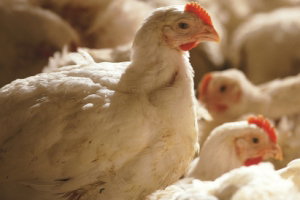EU poultry sector concerned about TTIP deal

Representatives of the European poultry industry are increasingly expressing concerns about the upcoming free trade agreement (FTA) between the European Union and the United States, also known as TTIP. They ask for a special position for the poultry industry.
The US-EU trade deal is better known as the Transatlantic Trade and Investment Partnership (TTIP). It is expected that negotiations will last until 2019 or 2020. Especially in the European Union, the deal is viewed with criticism and suspicion.
An FTA would guarantee tariff-free and unrestricted market access for US companies into the European Union and vice versa. For the European pig and poultry industries, this could lead to disturbance of a level playing field, since animal welfare regulations in the EU are different and often stricter than those in the US, leading to generally higher production costs.
Protection of sensitive products
The European Commission has therefore launched a strong plea for protection of sensitive products which would face a difficult time when all tariff barriers would be taken away. Cecilia Malmström, European Commissioner for Trade, stated that very sensitive agricultural products may well be kept outside the trade deal, although she declined to exactly name which products.
The egg and poultry industries have raised their hands to have their product ranges included into the list of sensitive products and as have representatives of the pig industry.
Animal welfare requirements
Frans van Dongen, spokesperson of behalf of the Dutch meat sector in Brussels, told World Polutry‘ sister title Boerderij Vandaag: “The only thing the European Union can do is state that if the US do not meet our animal welfare requirements – and they will not – we shall not go all the way meeting their demands for market access. That is all part of the negotiations.”
Prior to the start of the 12th round of negotiations – which started Monday, February, 23rd, several member states have urged the European Commission to have more attention for agriculture. They have pointed to a study by the United States Department of Agriculture (USDA), which concluded that the US agriculture would benefit as a consequence of the treaty.
The European Commission has stated that this study is based on the assumption that all agricultural tariffs will disappear, which is something that hasn’t been finalised yet.







![Birthe Steenberg, AVEC’s Secretary General: “Our [poultry] sector operates under the highest standards of animal welfare, biosecurity and sustainability in the world. Photo: Canva](https://www.poultryworld.net/app/uploads/2024/10/Untitled-design-79-389x260.jpeg)





